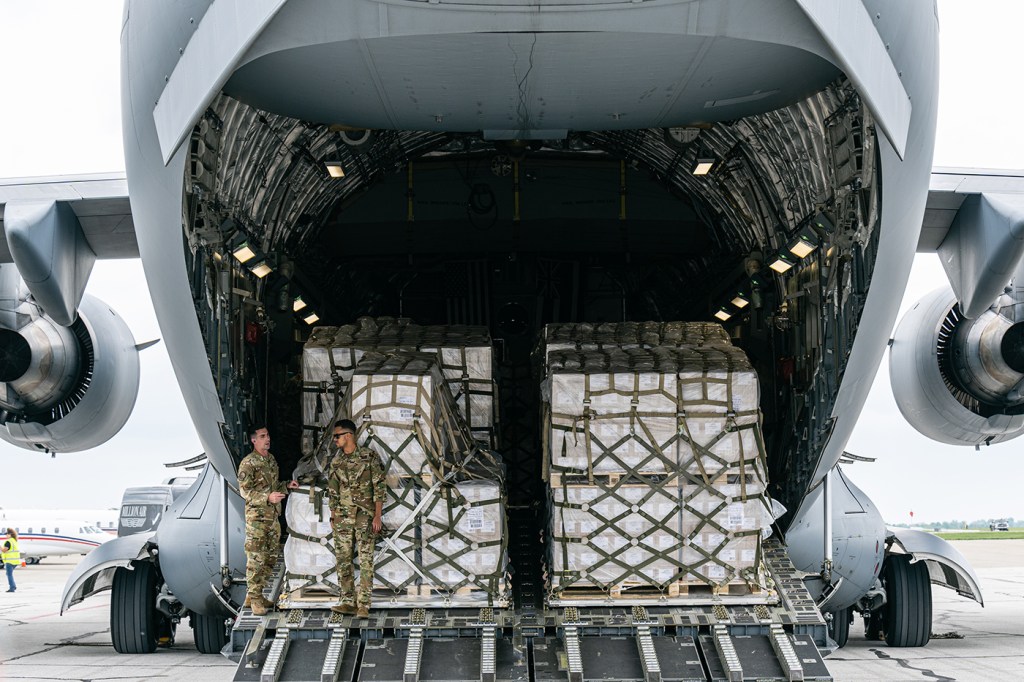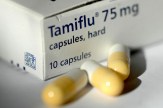Baby formula is arriving from overseas. Will it curb the crisis?

A military cargo plane delivered 78,000 pounds of baby formula to Indianapolis from Europe on Sunday, with another shipment expected to arrive from Germany on Wednesday, CNBC reports.
The new supply will bring much-needed relief to families across the country who have been struggling to feed their children as the U.S. faces an unprecedented infant formula shortage.
While it’s far from being a quick solution, the shipments are a good first step toward resolving the crisis, says Nada Sanders, a distinguished professor of supply chain management at Northeastern’s D’Amore-McKim School of Business.
“This is great news, as the government is doing what needs to be done for immediate relief,” she says. She emphasizes that 78,000 pounds is “not a big deal,” relatively speaking. Still, “more are coming.”
The shipment arrived days after the Biden administration invoked the Defense Production Act, which allowed the military to take over transport and to bypass normal trade routes, Sanders says. According to the U.S. Secretary of Agriculture Tom Vilsack, the shipment took three days, and it would normally have taken two weeks. “Together, these shipments will improve the supply of critical formula for babies and toddlers with medical needs,” Vilsack said in a tweet.

“This is great news, as the government is doing what needs to be done for immediate relief,” says Northeastern Distinguished Professor of supply chain management Nada Sanders. Photo by Adam Glanzman/Northeastern University
The shortage, Sanders says, is due to supply chain issues caused by the COVID-19 pandemic and the Ukraine war compounded by the closure of the Abbott Nutrition plant, one of the country’s biggest suppliers, in February. Since then, the out-of-stock rate for infant formula has soared to 43%, and several children with nutritional issues have been hospitalized as a result, CBS News reports. The shortage has also taken a mental toll on families who are scrambling to get their children adequate nutrition, Sanders says.
The CEO of Abbott apologized for the shortage in an op-ed published in the Washington Post on Saturday, and the plant will reopen early next month, NPR reports. Until that happens and the newly produced formula can be distributed, the influx of formula will need to continue, Sanders says. “It will be important now to make sure that these shipments continue until the shortage abates and production in the U.S. is up to speed,” she says.
The Biden administration will also need to be mindful of how the shortage disproportionately affects some parts of the country, she says. “The other key aspect will be allocation. Who gets the quantities? Which group is most critical?” Sanders says. “This is very tricky and this is why ample shipments have to continue so fairness and equity in distribution is established.”
None of the formula from the first shipment will make it to store shelves, as it is meant for children with allergies. It will go to hospitals and pharmacies instead, CNN reports.
Still, the news may help assuage parents’ fears and prevent them from stockpiling. Sanders says that panic could very well lead people to hoard baby formula, something the Biden administration acknowledged earlier this month when it said in a statement that it was urging businesses to set purchase limits. Retailers like Target, Walgreens, and CVS have all set limits, NBC News reports.
“The key will be ‘messaging’ of assurance telling people that more is coming,” she says. “People have to be repeatedly told that something is being done and that more products are coming. That will help with hoarding.”
For media inquiries, please contact media@northeastern.edu.






